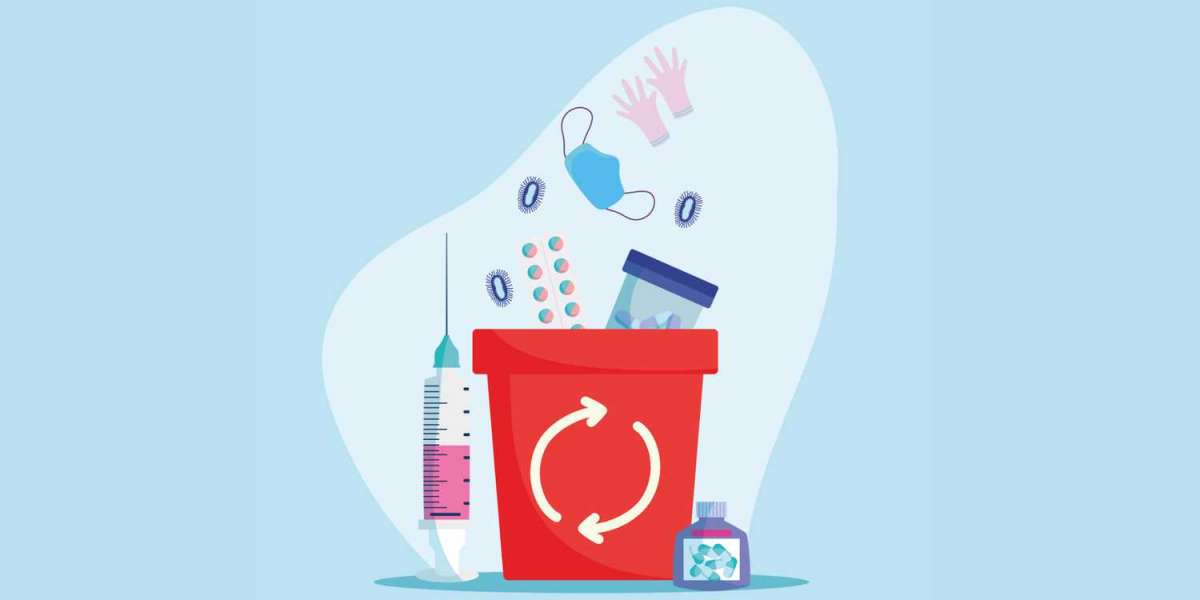Biomedical waste services are essential for the safe and responsible management of hazardous waste generated in healthcare facilities. Biomedical waste, also known as medical waste, includes materials contaminated with potentially infectious agents, hazardous chemicals, or radioactive substances. Proper handling and disposal of this waste are vital to protect healthcare workers, patients, and the environment. In this article, we will explore the various types of biomedical waste services and how they ensure the safe handling and disposal of this critical waste.
1. Collection Services:
Purpose: Collection services focus on the proper gathering and containment of biomedical waste at the point of generation within healthcare facilities.
Safe Handling: These services provide healthcare workers with specially designed containers for the segregation and collection of different types of biomedical waste. Containers are color-coded and labeled to ensure proper sorting.
Safe Disposal: Collected waste is stored in containers that meet regulatory standards. Once full, these containers are securely sealed and handed over to transportation services for further processing.
2. Transportation Services:
Purpose: Transportation services are responsible for the safe and compliant movement of biomedical waste from healthcare facilities to treatment and disposal facilities.
Safe Handling: Specialized vehicles equipped with safety features and trained personnel ensure that waste is securely loaded and transported without risk to the public or the environment.
Safe Disposal: Transportation services deliver the waste to authorized treatment facilities where it is processed according to regulatory guidelines.
3. Treatment Services:
Purpose: Treatment services focus on rendering biomedical waste non-hazardous and safe for final disposal.
Safe Handling: These facilities employ various methods, such as incineration, autoclaving, chemical treatment, and waste-to-energy technologies to neutralize pathogens and reduce waste volume.
Safe Disposal: Once treated, the waste is no longer infectious or hazardous. It can then be disposed of in a manner compliant with local, state, and federal regulations.
4. Disposal Services:
Purpose: Disposal services are responsible for the final and environmentally responsible disposal of biomedical waste.
Safe Handling: Disposal services ensure that waste is placed in authorized landfills, incinerated, or processed through waste-to-energy facilities, depending on the treatment method employed.
Safe Disposal: Proper disposal methods are crucial to prevent the contamination of soil, water, and ecosystems. Disposal services guarantee that waste is managed in a way that poses minimal risk to public health and the environment.
5. Training and Education Services:
Purpose: Training and education services provide healthcare workers and waste management personnel with the knowledge and skills required for safe biomedical waste management.
Safe Handling: These services conduct training programs to educate healthcare workers on the proper segregation, containment, labeling, and storage of biomedical waste.
Safe Disposal: Educating workers on safe disposal practices, regulatory compliance, and emergency response procedures is crucial to ensure the safe handling and disposal of biomedical waste.
6. Compliance and Regulatory Services:
Purpose: Compliance and regulatory services help healthcare facilities navigate the complex web of local, state, and federal regulations governing biomedical waste management.
Safe Handling: These services ensure that healthcare facilities remain in compliance with applicable laws and regulations. They assist with documentation, record-keeping, and the development of waste management plans.
Safe Disposal: Compliance services also help healthcare facilities implement best practices for safe biomedical waste disposal, reducing the risk of non-compliance and associated penalties.
Conclusion
Biomedical waste services encompass collection, transportation, treatment, disposal, training, education, and regulatory compliance services. Each type plays a crucial role in the safe and responsible management of biomedical waste in healthcare settings. By providing healthcare workers with the tools, knowledge, and resources needed for proper handling and disposal, these services protect public health, healthcare workers, and the environment, ensuring that biomedical waste is managed in a way that poses minimal risk to society.


